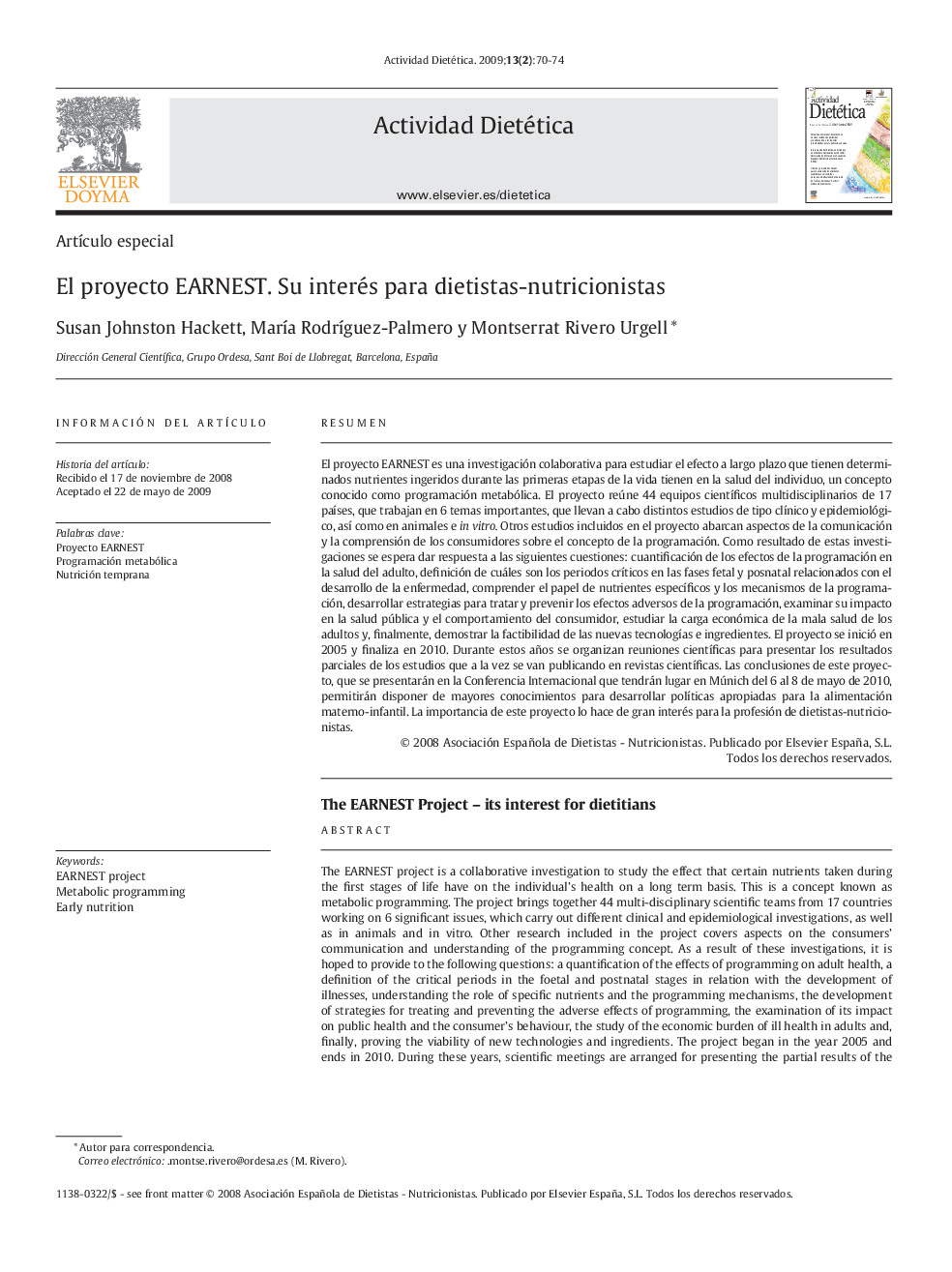| Article ID | Journal | Published Year | Pages | File Type |
|---|---|---|---|---|
| 2687789 | Actividad Dietética | 2009 | 5 Pages |
Abstract
The EARNEST project is a collaborative investigation to study the effect that certain nutrients taken during the first stages of life have on the individual's health on a long term basis. This is a concept known as metabolic programming. The project brings together 44 multi-disciplinary scientific teams from 17 countries working on 6 significant issues, which carry out different clinical and epidemiological investigations, as well as in animals and in vitro. Other research included in the project covers aspects on the consumers' communication and understanding of the programming concept. As a result of these investigations, it is hoped to provide to the following questions: a quantification of the effects of programming on adult health, a definition of the critical periods in the foetal and postnatal stages in relation with the development of illnesses, understanding the role of specific nutrients and the programming mechanisms, the development of strategies for treating and preventing the adverse effects of programming, the examination of its impact on public health and the consumer's behaviour, the study of the economic burden of ill health in adults and, finally, proving the viability of new technologies and ingredients. The project began in the year 2005 and ends in 2010. During these years, scientific meetings are arranged for presenting the partial results of the studies which, at the same time, are published in scientific journals. This project's conclusions, which will be presented at the International Conference to be held in Munich from May 6th to 8th, 2010, will allow more knowledge to be available for developing appropriate mother and child food policies. This project's importance makes it highly interesting for the dietician-nutritionist profession.
Keywords
Related Topics
Health Sciences
Nursing and Health Professions
Nutrition
Authors
Susan Johnston Hackett, MarÃa RodrÃguez-Palmero, Montserrat Rivero Urgell,
